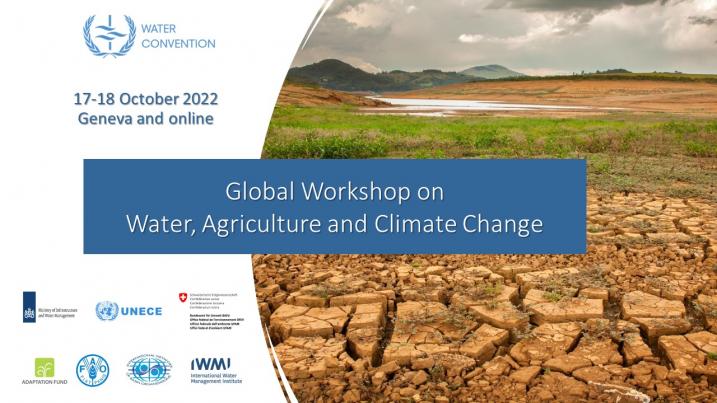By 2050 some 60 percent more food - up to 100 percent in developing countries - is expected to be needed in order to feed the world while agriculture will continue to be the largest user of water globally, accounting in many countries for around two-thirds or more of supplies drawn from rivers, lakes and aquifers. This has important implications for the adaptation of water systems at the watershed and basin levels, both in terms of water allocation between agriculture and other water uses and of environmental externalities. Next to that, adaptation of agricultural practices are needed to account for the reduced water availability.
Understanding intersectoral impacts opens crucial opportunities for cooperation benefits that transboundary water cooperation can leverage.
The workshop brought together more than 200 experts from the water, climate change, agriculture, environment communities as well as from transboundary basin organisations to strengthen cooperation and jointly discuss best practices and lessons learned in addressing water scarcity and water quality through improving climate adaptation and equitable and sustainable water allocation on the national and transboundary levels. Participants included representatives of governments, non-Governmental and intergovernmental organizations, international financial institutions, academia, the private sector and other experts.
Take away messages from the workshop will constitute discussion material at side events organised during the upcoming COP 27 in Egypt.
The global workshop has been organized under the auspices of the Water Convention serviced by UNECE, under the leadership of the Netherlands and Switzerland, in cooperation with the Adaptation Fund, the Food and Agriculture Organisation of the United Nations (FAO), the International Network of Basin Organisations (INBO) and the International Water Management Institute (IWMI).
The workshop has been followed by the thirteenth meeting of the Task Force on Water and Climate under the Water Convention on 19 October 2022, which reviewed all climate change activities as well as plans for the future under the Convention.
